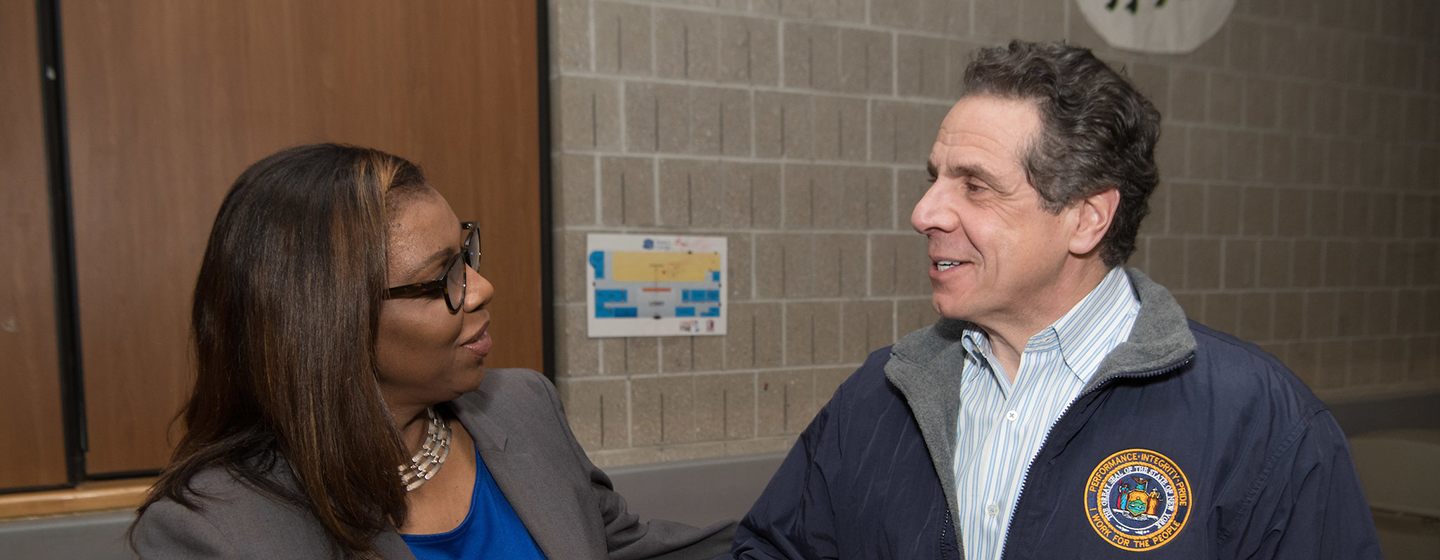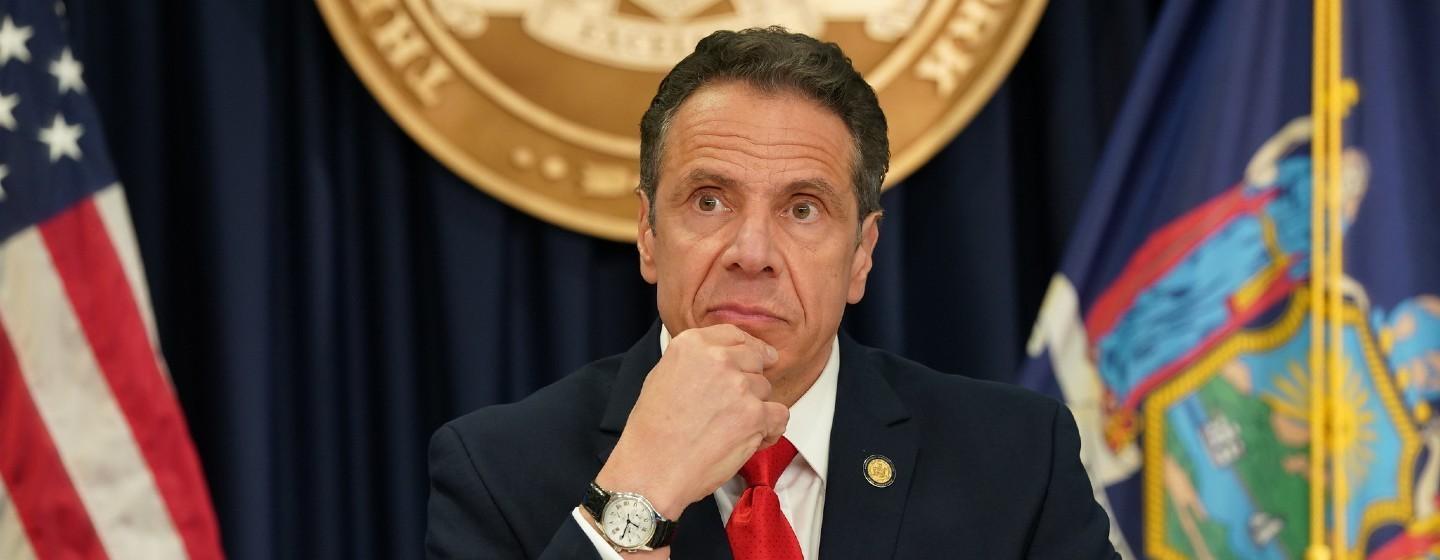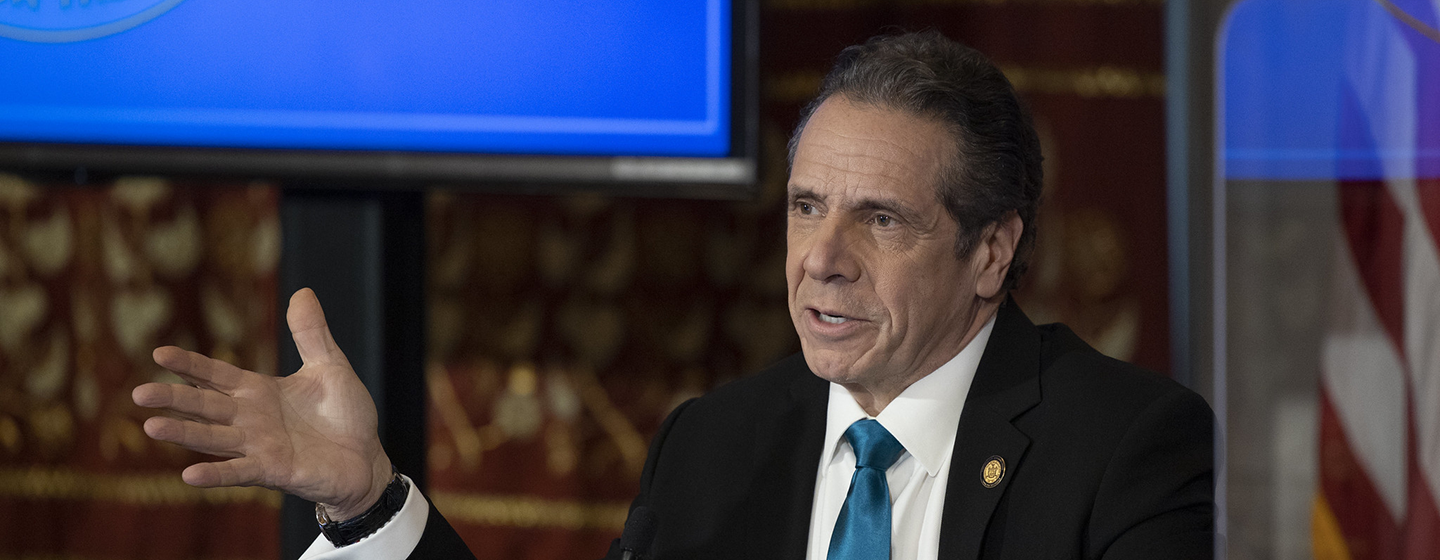Cuomo Sexual Harassment Referral Prompts Questions on NY's Laws Directing the Probe

Probe Into Sexual Harassment Claims Against Gov. Andrew Cuomo
The special counsel investigating claims of sexual harassment against Gov. Andrew Cuomo could be required to issue weekly reports to the three-term governor on the status of the probe under the section of state law used to launch the inquiry.
The statute, which lays out how New York Attorney General Letitia James will handle the probe, says the special counsel “shall” issue weekly updates to both James and the sitting governor.
“Each deputy or other officer appointed or designated to conduct such inquiry shall make a weekly report in detail to the attorney-general, in form to be approved by the governor and the attorney-general, which report shall be in duplicate, one copy of which shall be forthwith, upon its receipt by the attorney-general, transmitted by him to the governor,” the law reads.
Beth Garvey, special counsel to Cuomo, wrote in a letter to James Monday that the administration will waive those reports, though it’s unclear if they have the legal authority to do so.
“Due to the nature of this review, however, the weekly reports contemplated by Executive Law §63 (8) will not be approved by or transmitted to the Executive,” Garvey wrote.
From a legal standpoint, the word “shall” is usually interpreted to mean that the duty requested can’t be waived unless the law is changed. A source familiar with the statute said Cuomo’s office can’t agree to forego the reports.
“That’s not what the law says. It says they have to send them,” the source said.
Not everyone shares that interpretation. Ava Ayers, director of the Government Law Center at Albany Law School, said the point could be moot since a legal challenge to Cuomo’s decision on waiving the reports is unlikely.
“It’s very hard to imagine a lawsuit since the two parties here agree on what’s to be done,” Ayers said. “So, nobody else that I can think of would have standing to sue that this is improper.”
That statute, section 63(8) of the state executive law, provides the framework for situations when the Attorney General’s Office is given a referral to launch an investigation.
In this case, the Attorney General’s Office was issued a referral by the Cuomo administration under that section of law Monday to investigate recent claims of sexual harassment brought against the governor by two former aides.
Charlotte Bennett, a former executive assistant in the Cuomo administration, told the New York Times over the weekend that Cuomo asked her inappropriate questions when they were alone, including if she would be interested in sleeping with older men.
Bennett also claimed that Cuomo told her he wouldn’t be opposed to having a relationship with someone as young as 23, and asked her if she was monogamous in her relationships.
Lindsey Boylan, a former top economic development official in the Cuomo administration, said in a post on the online platform Medium that Cuomo offered to pay strip poker with her, paid her an inappropriate amount of attention, and tried to kiss her while the two were alone.
The allegations sparked calls, over the weekend, for an independent investigation into the claims conducted by someone outside the reach of the Cuomo administration.
After some back-and-forth, Cuomo’s office said it would refer the matter to the state Attorney General’s Office, who would then appoint a nonpolitical, independent lawyer to lead the investigation. James’ office has not yet made that selection.
The situation has also called attention to the limitations of the Attorney General’s Office, which can’t launch an investigation like this, or lead criminal inquiries, without a referral from an appropriate state agency, like Cuomo’s office.
State Sen. Todd Kaminsky, a Democrat from Nassau County who was previously a federal prosecutor, introduced legislation on Monday that would remove that requirement.
Kaminsky’s bill would allow the Attorney General’s Office to launch its own investigations, both civil and criminal, without a referral from another agency. In other words, the state’s top lawyer wouldn’t need permission to start a probe, as is currently required under state law.
“The Attorney General must be empowered to conduct investigations and prosecutions without fear and favor, no matter the subject,” Kaminsky said.
“Removing the requirement of a referral will untie the hands of the Attorney General — and the vast resources of that office can help check corruption and other illegal behavior that plagues Albany and the rest of the state. The time to act is now and the public’s trust and the integrity of our government demand nothing less.”
If passed, questions over the reports required under section 63(8) of the state executive law wouldn’t apply because James wouldn’t need a referral under that statute to launch an investigation.
It’s likely that Kaminsky’s bill would be amended before it goes to the floor in the Senate if lawmakers agree to move it.
James, who was elected as New York Attorney General in 2018, has previously called on lawmakers to expand the investigative powers of her office. She’s sought to have original criminal and civil jurisdiction, which is what Kaminsky’s bill would do.
At the time, her request was in response to public corruption charges levied against elected officials in the state Legislature, though the change proposed by Kaminsky’s bill would allow James to have jurisdiction over any type of investigation relevant to her office.
Related
NEW: Cuomo is now asking @NewYorkStateAG@TishJames to select a special counsel, says Special Counsel Beth Garvey.
— Dan Clark (@DanClarkReports) February 28, 2021
The attorney would be appointed by the AG, would operate under under Section 63(8) of the Executive Law.
Statement and that section of law is attached here. pic.twitter.com/03afjlT0X4

Cuomo Says He's 'Playful' at Work, But Never Touched Anyone
Cuomo, in a statement, acknowledged that some of his comments to staffers could be “misinterpreted as an unwanted flirtation,” and said he never inappropriately touched anyone.

Second Former Aide Accuses Cuomo of Sexual Harassment
Gov. Andrew Cuomo has been accused by a second former aide of sexual harassment, prompting both leaders from the state Legislature to support an independent investigation.


